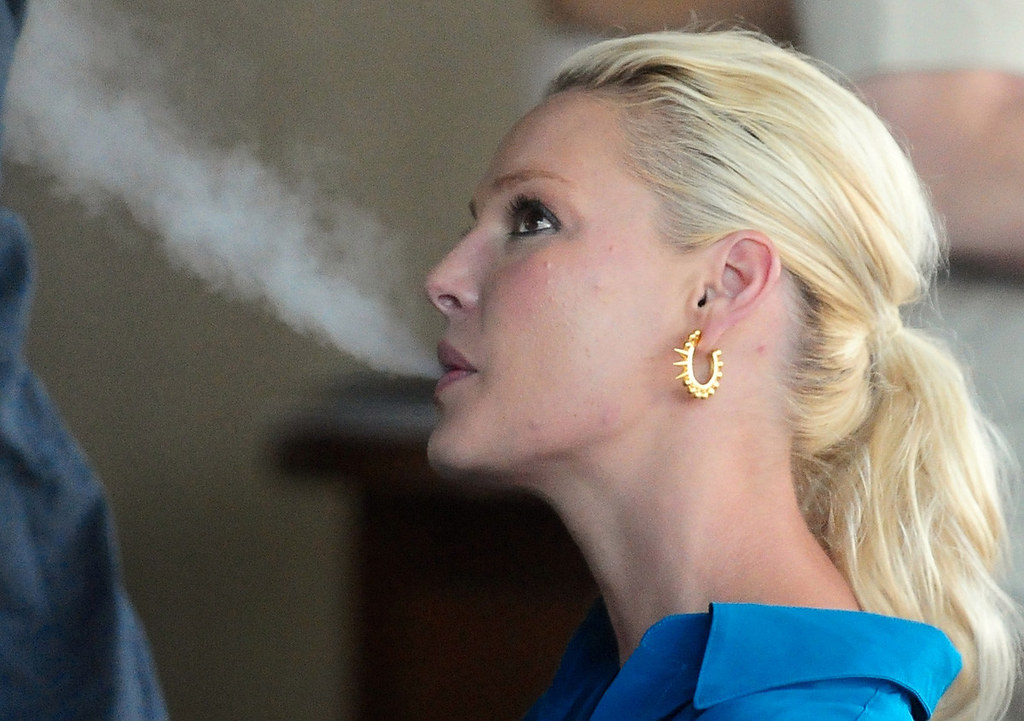
Navigating the world of celebrity can be like walking a tightrope, where every statement is scrutinized, and any misstep can resonate disastrously. When the cameras roll and the microphones go live, the stakes are immeasurably high. This article delves into how a few misplaced words or an ill-advised role can derail years of hard work, offering a stark reminder of the relentless spotlight that accompanies fame.
We often perceive A-list actors as being as smooth and charming off-screen as they are on, but the reality is they make mistakes just like anyone else – only theirs are captured on film, projected six stories high, and immortalized for generations to criticize and mock. It’s a fascinating, albeit sometimes dramatic, look at the unforgiving nature of the entertainment industry.
Here, we will explore 15 infamous instances where stars stumbled, revealing the profound consequences that can follow. These moments, whether a controversial interview or a particularly ill-advised and embarrassing role, stirred controversy that led to significant setbacks in the careers of those involved, proving that even at the pinnacle of fame, one wrong move can alter a career trajectory forever.

1. Megan Fox: The “Hitler” Comparison
Megan Fox experienced a sharp downturn in her career trajectory after a 2009 interview with Wonderland magazine. Her comments regarding ‘Transformers’ director Michael Bay were particularly damaging, as she controversially compared him to Hitler.
Fox’s intention was to illustrate the intensity of Bay’s directorial style, describing him as a “nightmare to work with.” However, her remarks were widely perceived as harsh, disrespectful, and completely out of line. This shocking statement caused immediate repercussions within the film industry, proving just how quickly public perception can turn.
The fallout was swift and severe: Fox was subsequently fired from the next installment in the franchise, ‘Transformers: Dark Side of the Moon.’ She found herself effectively blacklisted in Hollywood, struggling significantly to secure major roles for several years. It wasn’t until she issued a public apology to Michael Bay that her career slowly began to recover, serving as a stark reminder of the dramatic impact a single interview can have.

2. Tom Cruise: The ‘Today’ Show Confrontation
Tom Cruise’s 2005 interview on the ‘Today’ show with Matt Lauer remains infamous for its contentious nature, primarily revolving around the topics of psychiatry and his Scientology beliefs. This unscripted moment provided a rare, unfiltered glimpse into Cruise’s personal convictions.
During the interview, Cruise openly criticized actress Brooke Shields for her use of antidepressants to manage postpartum depression. He then dismissed Lauer’s arguments in favor of psychiatric drugs with an aggressive and confrontational stance, firmly rooted in his own Scientology teachings. His assertions were widely perceived as dismissive towards established psychiatric practices, alienating a significant portion of the viewing public and sparking widespread debate.
The backlash from this public display was both immediate and widespread, creating a significant public relations challenge for Cruise. While he remained a major figure in Hollywood, the interview is frequently cited as a turning point in how the public perceived his off-screen persona, starkly illustrating the profound impact personal beliefs can have when expressed in such a polarizing and unyielding manner.

3. John Mayer: Oversharing in Playboy
John Mayer faced a torrent of criticism following his candid 2010 interview with Playboy magazine. In a remarkably transparent discussion, he delved into his personal life and sexual preferences with explicit details that quickly became the center of public outrage.
Specifically, his admission of preferring to date white women exclusively sparked accusations of racial insensitivity. While Mayer may have intended his candor to be transparent and honest, it was widely interpreted as tactless and offensive by many, highlighting the significant risks public figures take when sharing too much personal information in a high-profile forum.
The fallout from Mayer’s interview proved severe, leading many fans and critics to distance themselves from the artist. While it did not ultimately end his music career, it undeniably tarnished his public image and significantly eroded a portion of his dedicated fan base. Mayer’s experience serves as a cautionary tale about the dangers of oversharing in the media, demonstrating how deeply personal revelations can spectacularly backfire and lead to widespread public and professional consequences.
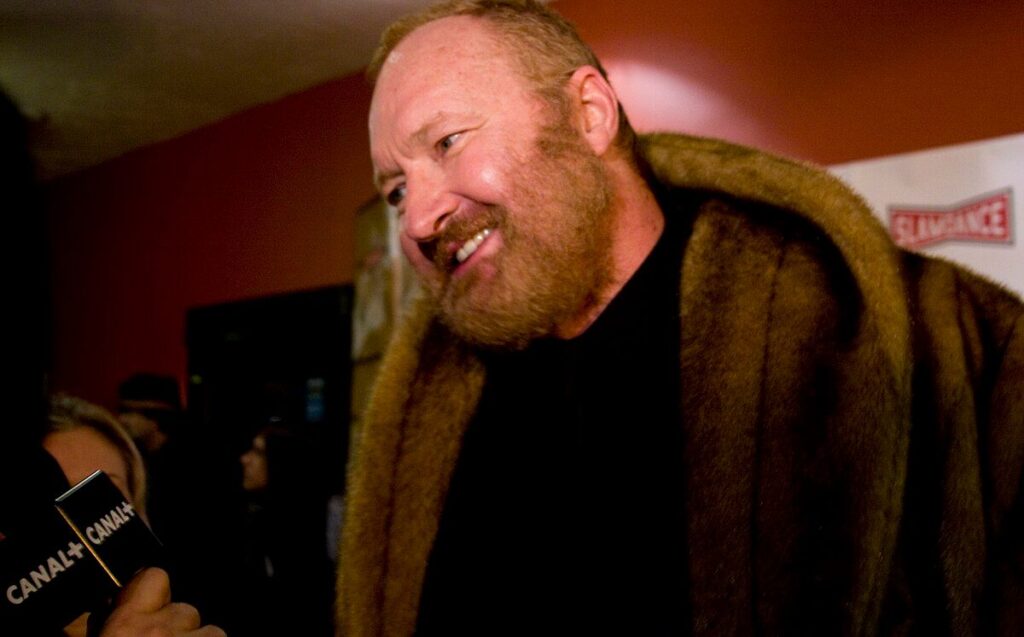
4. Randy Quaid: The “Hollywood Star Wackers” Saga
Randy Quaid, a solid comedic actor with an Oscar nomination to his name, took a bizarre turn in the late 2000s that dramatically impacted his career. The initial signs of trouble appeared in September 2009 when he and his wife, Evi, were arrested for failing to pay a substantial $10,000 hotel bill.
Further arrests followed, this time for squatting in a home they previously owned, prompting them to skip town and head to Canada. While not paying bills and squatting might seem like unusual behavior for a well-known actor, it was merely the prelude to far stranger events that would unfold in the North.
In Canada, the situation escalated into the truly bizarre. The Quaids claimed they had fled to avoid the “Hollywood Star Wackers,” a secret organization they alleged was responsible for taking out celebrities or manufacturing scandals to discredit them. Quaid made these claims to the Vancouver press, bizarrely asserting that Heath Ledger, David Carradine, and Chris Penn were among the cabal’s latest victims, cementing his reputation for erratic public statements.
These increasingly strange public claims and behaviors continued, including a video posted to Twitter in February 2017 where Quaid, sporting a full mountain-man beard, pretended to engage in sexual acts with his wife, who wore a Rupert Murdoch mask. Such incidents have made a significant career comeback seem highly unlikely for the once-respected actor.

5. Elizabeth Berkley: The ‘Showgirls’ Gamble
From 1989 to 1993, Elizabeth Berkley was a recognizable face as the brainy, somewhat neurotic Jessie Spano in 75 episodes of ‘Saved By The Bell.’ When NBC canceled the popular series, Berkley, then 23, made a conscious decision to pursue more mature and challenging roles to shed her teen idol image. She found what seemed like a significant opportunity in ‘Showgirls,’ which became the first major NC-17 movie to be widely released.
Berkley secured the lead role over a young Charlize Theron, a move that promised a bold new direction for her career. However, ‘Showgirls’ proved to be a catastrophic failure, not only tanking at the box office but also inciting brutally negative reviews from critics. The film became notorious for its perceived poor quality and garnered a record 13 nominations and seven wins at the Golden Raspberry Awards, including Worst Picture.
Berkley herself was not spared, taking home Razzies for Worst Actress and Worst New Star. Director Paul Verhoeven, in a 2015 interview with NY Daily News, noted that Hollywood unfairly “turned its back” on Berkley. Her career quickly shifted from promising big-budget features to appearances in Lifetime Original Movies and sporadic small parts on television shows, ultimately leading her to compete on ‘Dancing With the Stars,’ a far cry from her initial Hollywood aspirations.
Read more about: Here’s What Really Happened To Elizabeth Berkley: An In-Depth Look at Hollywood’s Toughest Reckonings and Redemption

6. Freddie Prinze Jr.: From Heartthrob to “Scooby-Doo” Setback
Freddie Prinze Jr.’s fame was intrinsically linked to the Hollywood landscape of the 1990s, a period when teen slasher flicks and romantic comedies dominated. He was a young man in incredibly high demand, starring as Ray Bronson in the successful 1997 film ‘I Know What You Did Last Summer’ and its 1998 sequel.
His role in 1999’s ‘She’s All That’ further cemented his status as a Hollywood heartthrob, making him a household name among younger audiences. However, the new millennium brought a significant change in fortunes for the actor. While filmmakers continued to be interested in casting him in romantic comedies, audience interest began to wane considerably.
After starring in a string of critical flops in the early 2000s, Prinze Jr. attempted a different direction, taking on the role of the bleach-blond paranormal investigator Fred in the 2002 ‘Scooby-Doo’ movie. Despite a decent showing at the box office, the adaptation of the classic Hanna-Barbera cartoon was heavily panned by critics, leaving Prinze Jr. struggling for professional credibility.
He further committed to this new path by returning for the film’s 2004 sequel, a decision that did little to revive his critically lauded career. The actor later openly revealed that he “didn’t have fun” making either movie, and in the aftermath, he largely abandoned mainstream Hollywood, choosing instead to pursue other passions like writing for the WWE. His career as a prominent movie star never fully recovered from this shift and critical reception.

7. Alicia Silverstone: The “Batman & Robin” Backlash
Alicia Silverstone captivated audiences as the effervescent “Cher Horowitz” in the 1995 hit “Clueless,” solidifying her status as a beloved “It Girl” of the era. Her career trajectory seemed undeniably bright, marked by a fresh, relatable charm. However, this promising ascent took a dramatic turn when she accepted the role of Batgirl in Joel Schumacher’s highly anticipated 1997 film, “Batman & Robin.”
Despite the film’s potential, it was poorly received by critics and audiences alike. Silverstone’s Razzie-winning turn as Batgirl became a significant point of contention, contributing to the movie’s overall failure. This single role not only tarnished her immediate reputation but also negatively impacted the release of her subsequent starring vehicle, “Excess Baggage,” a crime-comedy that struggled to find an audience and thus killed the critical momentum she had carefully built.
Adding further insult to injury, Silverstone was subjected to a disastrous press tour for “Batman & Robin,” where journalists cruelly body-shamed her for allegedly gaining weight during the production. This intense public scrutiny and personal criticism, coupled with the film’s catastrophic reception, delivered a severe blow to her promising young career, making it exceedingly difficult to regain her footing in the demanding Hollywood landscape.
While Silverstone has slowly but surely fought her way back into the limelight with roles in projects like “The Lodge,” “The Baby-Sitters Club,” and “Senior Year,” receiving a Golden Globe nomination in 2003 for her short-lived ABC series “Miss Match,” the undeniable failure of “Batman & Robin” took a considerable amount of wind out of the sails of what was once a rapidly accelerating career. It stands as a stark reminder of how quickly public perception and industry opportunities can shift.
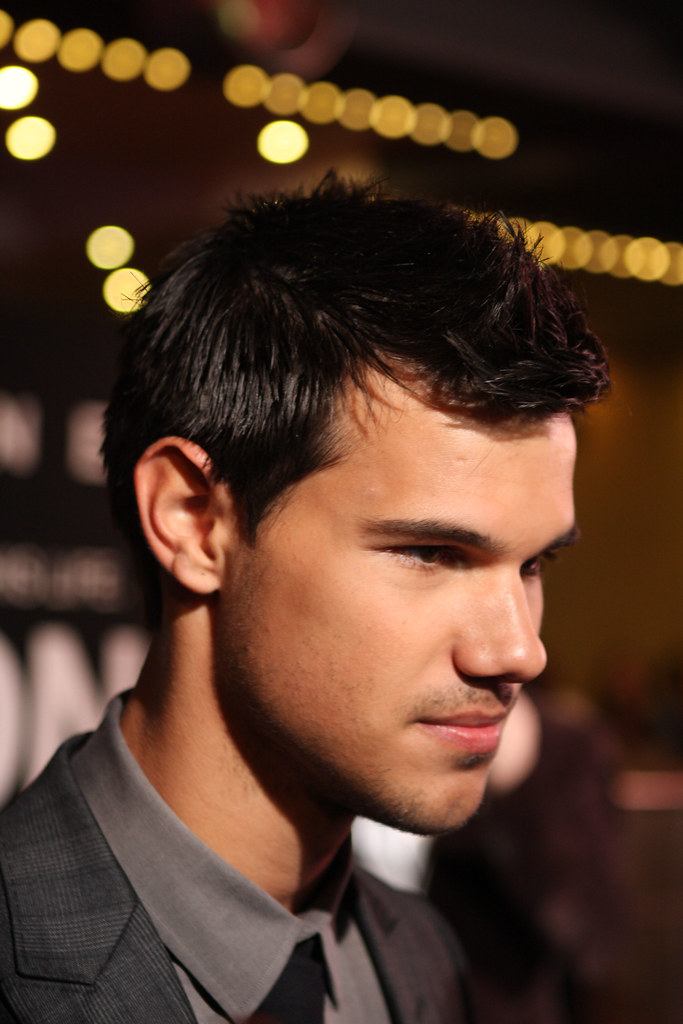
8. Taylor Lautner: The “Abduction” Misstep
Taylor Lautner emerged as a breakout star thanks to his portrayal of Jacob Black in “The Twilight Saga,” cultivating a loyal fanbase among “Team Jacob” enthusiasts. His popularity was immense, leading many to believe he was on the cusp of becoming the next major blockbuster star. His name was frequently attached to a slew of high-profile projects, including a collaboration with director Michael Bay and adaptations of popular books, signaling a seemingly bright future in leading roles.
However, unlike his co-stars Kristen Stewart and Robert Pattinson, who navigated their post-Twilight careers with varying degrees of success and critical forgiveness, Lautner faced a much harsher reception for his first major high-profile flop. Hoping to capitalize on his established werewolf popularity, Lionsgate swiftly positioned Lautner in the lead role for the 2011 mystery-action film, “Abduction.”
This cinematic gamble, unfortunately, did not pay off. “Abduction” was met with overwhelming critical derision and failed to generate the audience enthusiasm needed to justify the significant asking price attached to a star of Lautner’s perceived caliber. It became a critical joke, proving that a strong fanbase from a franchise does not automatically translate into solo box office success or critical acclaim.
The movie’s profound letdown dramatically impacted Lautner’s career trajectory, making it a significant struggle for him to maintain a presence in mainstream Hollywood. His subsequent appearances were largely limited to smaller roles in Adam Sandler films like “Grown Ups 2” and “The Ridiculous 6,” a considerable downgrade from the blockbuster status he once seemed destined to achieve. “Abduction” effectively halted his ascent, altering his path from a potential A-lister to a supporting player.
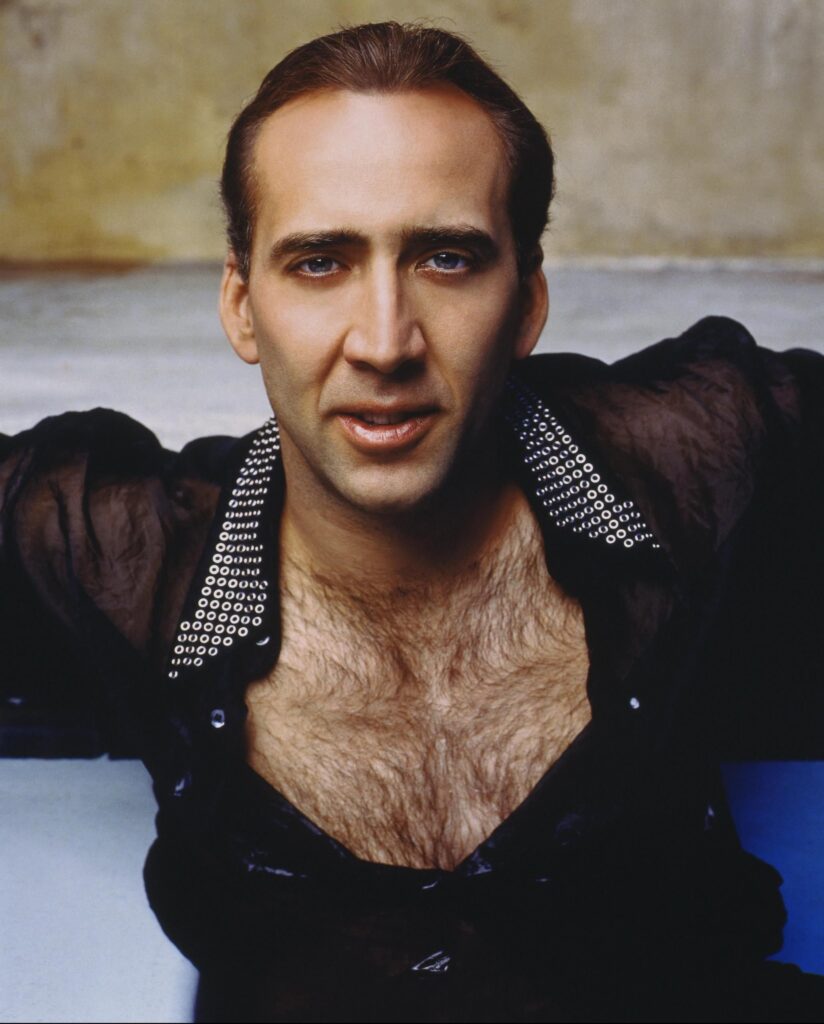
9. Nicolas Cage: “Bangkok Dangerous” and the Direct-to-Video Slide**
Nicolas Cage, an Oscar-winning actor with a history of critical successes, saw a significant portion of his career shift from prestigious cinema to a prolific output of straight-to-VOD films. While his career had always been pockmarked with a mix of hits and misses, he typically managed to balance the flops with well-timed critical or financial successes, maintaining his status as a credible A-lister for a considerable period.
However, after a series of underwhelming performances in films like 2006’s “The Wicker Man” and 2007’s “Ghost Rider,” his position at the top began to look seriously dubious. The 2008 action-thriller “Bangkok Dangerous” marked a particularly acute downturn. This remake of a 1999 Thai film failed disastrously at the box office, unable to even recoup its modest budget in the worldwide market, let alone domestically.
Critics were brutal, with Rotten Tomatoes assigning “Bangkok Dangerous” an embarrassingly low 9 percent approval rating. Reviewers lambasted it for “murky cinematography, a meandering pace, a dull storyline, and rather wooden performances.” This critical pummeling was not an isolated incident; it became a regrettable trend that continued over the years, forcing Cage to fundamentally reexamine his career choices and public perception.
The failure of “Bangkok Dangerous” solidified a period where Cage’s films frequently struggled critically and commercially, contributing to his reputation as a direct-to-video star. While he later experienced a strange resurgence, earning acclaim for films like “Pig” and “Mandy” and even a role in “Spider-Man: Into the Spider-verse” as Spider-Man Noir, the 2008 film stands as a clear marker of when his mainstream credibility suffered a profound and lasting blow.
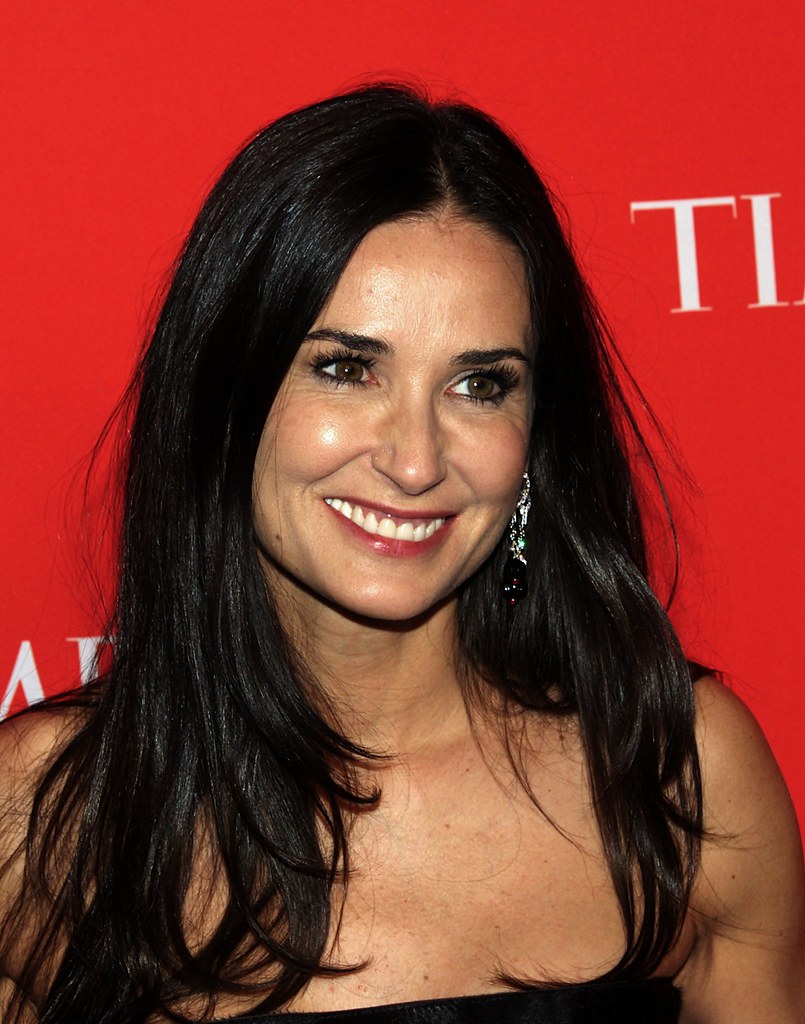
10. Demi Moore: The “Striptease” Stumble
Demi Moore rose to prominence as an influential member of the “Brat Pack,” a group of young actors who defined Hollywood through the mid-to-late 1980s. Her breakout performance opposite Patrick Swayze in the 1990 romantic drama “Ghost” was a colossal success, earning an astonishing $500 million worldwide against a modest $22 million budget. This established her as a formidable and highly sought-after actress throughout the early 1990s.
By the mid-decade, Moore had ascended to the pinnacle of Hollywood, officially becoming the highest-paid actress. She commanded a record $12.5 million payday for her lead role in the 1996 erotic comedy “Striptease,” a move that signaled her immense star power and bankability. However, this high-stakes venture proved to be a catastrophic failure, both critically and commercially. The film tanked at the box office, opening far behind competitors like “The Nutty Professor” and “Eraser.”
The fallout for Moore was immediate and severe. “Striptease” swept the Golden Raspberry Awards, taking home six Razzies, including Worst Picture. Moore herself was not spared, and she was quickly branded “box office poison” overnight by the industry. This sudden shift in perception was so drastic that even the Disney Corporation expressed concern over the impending release of her film “G.I. Jane,” which had already been signed off on.
A senior executive reportedly told Newsweek, “We don’t know what to do. People just don’t want to see her. We would have to drag them kicking and screaming to see this movie.” After “G.I. Jane” also failed to turn a profit, Moore largely receded from the intense Hollywood spotlight, becoming more known for her high-profile marriage to, and eventual divorce from, Ashton Kutcher. “Striptease” remains a pivotal moment when her seemingly unshakeable career momentum evaporated.

11. Taylor Kitsch: The “John Carter” Disaster
Taylor Kitsch’s journey to Hollywood was far from conventional; he nearly became a professional hockey player before an injury forced a career reconsideration. After enduring hardship, sleeping on subways in New York and living out of his car in Los Angeles, he caught his break as running back Tim Riggins in the acclaimed NBC football drama “Friday Night Lights,” where he gained a significant cult following.
His rising popularity positioned him for major leading roles, but this very momentum ultimately worked against him. In 2012, Kitsch was cast to front Disney’s ambitious adaptation of “John Carter,” a sci-fi epic that unfortunately became synonymous with “box office bomb.” The studio faced a staggering $200 million loss on the film, a financial disaster that severely impacted Kitsch’s burgeoning big-screen career.
The disappointment continued later that same year with the poor performance of another tentpole film, “Battleship.” This double blow proved to be the “nail in Kitsch’s coffin” for his aspirations as an A-list leading man. Box office analyst Jeff Bock noted, “There is no doubt that a studio would think twice about casting him as a lead after the poor performances of both ‘Battleship’ and ‘John Carter’.”
Kitsch’s promising ascent was effectively halted. While he might still be considered for roles, his standing plummeted from a prospective A-lister to “pretty far down” the list, forcing a significant recalibration of his career expectations. The immense financial and critical failures of these two films indelibly marked his career, demonstrating the harsh realities of Hollywood’s high-stakes game.
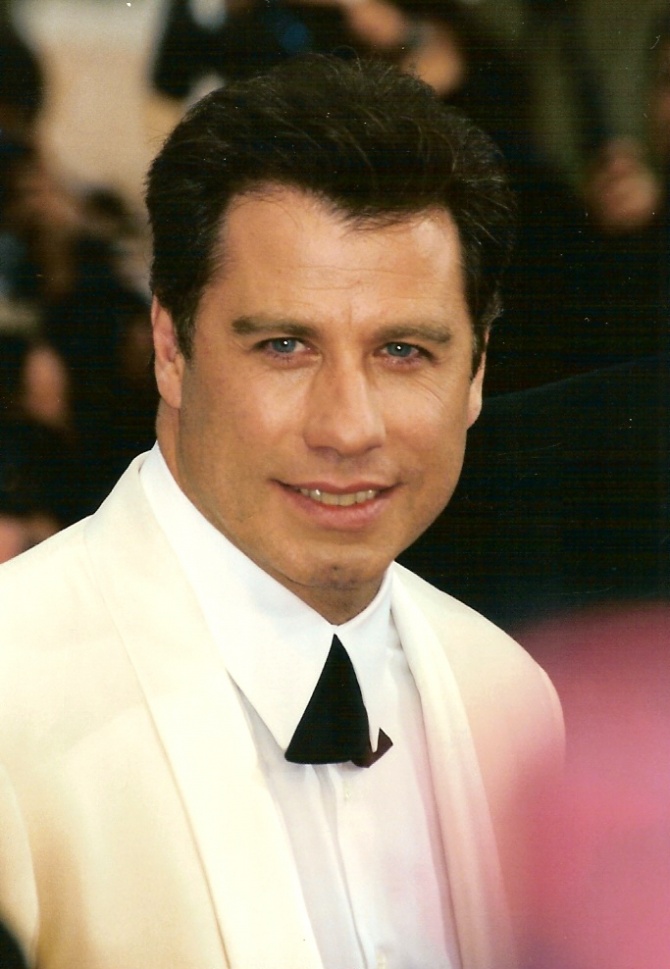
12. John Travolta: “Battlefield Earth” and Another Career Implosion
John Travolta’s career is a remarkable narrative of multiple resurrections, an actor who has repeatedly found ways to breathe new life into seemingly dead and buried professional trajectories. From his global superstardom after 1978’s “Grease,” through a mid-80s slump, to an unexpected fortune with “Look Who’s Talking,” and then a monumental re-invention with Quentin Tarantino’s “Pulp Fiction,” he consistently defied expectations.
However, despite these comebacks and subsequent hits like “Phenomenon” and “Face/Off” in the mid-90s, poor choices in the latter part of the decade meant his career re-imploded yet again with the arrival of the new millennium. The year 2000 brought the release of “Battlefield Earth,” a film that critics, including The Guardian, famously branded as “one of the worst movies ever made.”
The adaptation of L. Ron Hubbard’s novel was universally savaged. Rotten Tomatoes awarded the film a pitiful 3 percent approval rating, a stark indicator of its critical reception. More devastatingly for Travolta, “Battlefield Earth” was a colossal financial flop, costing $73 million to produce but returning less than $30 million at the box office.
This critically and commercially disastrous project single-handedly sank Travolta’s career once more, proving that even a star with a proven track record of comebacks could suffer an almost irreparable setback from one truly miscalculated project. The film became an enduring symbol of how a single artistic misstep can profoundly impact a celebrity’s professional standing and audience trust.
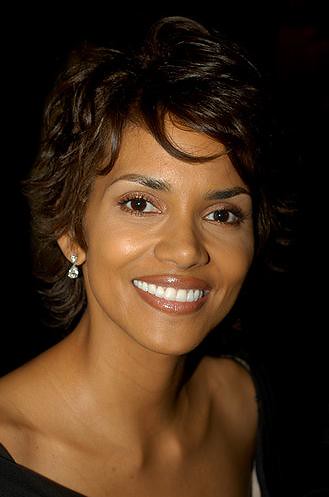
13. Halle Berry: The “Catwoman” Curse
Fresh off her historic, Oscar-winning performance in 2001’s “Monster’s Ball,” Halle Berry commanded the kind of industry clout that allowed her to choose virtually any role she desired. This monumental achievement should have solidified her status as an unquestionable A-list talent with an open road ahead. Unfortunately, she chose to star in the 2004 DC Comics spinoff, “Catwoman,” a decision that proved to be a significant career misstep.
The film was a spectacular failure, almost single-handedly sweeping the Golden Raspberry Awards and earning critical scorn from nearly all quarters. Berry herself bore the brunt of the fallout, with the Arizona Republic even suggesting she return her coveted Academy Award – a testament to the severity of the film’s negative impact on her perceived credibility.
Following the “Catwoman” debacle, Berry’s career momentum significantly faltered. She found herself relegated to diminished supporting roles, such as her return as Storm in the “X-Men” film series, struggling immensely to reclaim the powerful trajectory she had established in the early 2000s. The late 2000s saw her virtually disappear from the screen, with no credits for two consecutive years, highlighting the profound professional challenge she faced.
While Berry slowly but surely began to carve out a new path for herself in the 2010s with roles in films like “Kingsman: The Golden Circle” and “John Wick: Chapter 3 – Parabellum,” and eventually making her directorial debut with “Bruised” in 2020, “Catwoman” remains a powerful cautionary tale. It underscores how even an Oscar-winning actress can see her career tanked by one critically panned and financially disastrous role, illustrating the relentless and often unforgiving nature of Hollywood’s judgment.
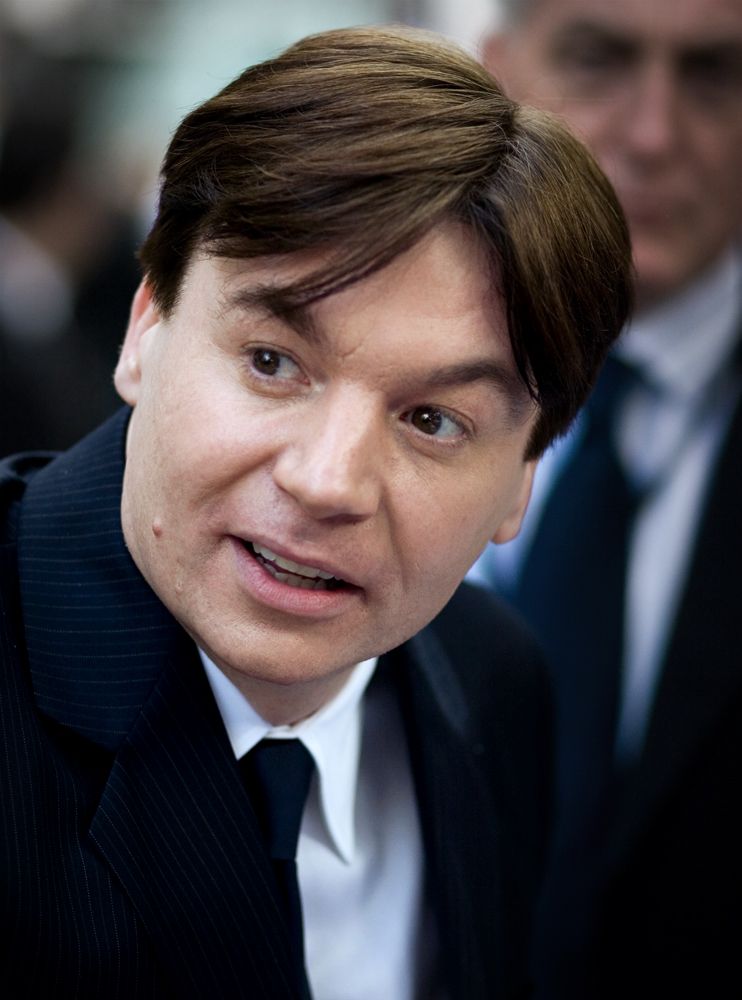
14. Mike Myers: The “Love Guru” Calamity
Mike Myers cultivated a comedic legacy built on iconic characters from “Wayne’s World,” “Austin Powers,” and “Shrek,” establishing himself as a household name with a unique brand of humor. However, when one looks beyond these undeniable successes, his post-‘Saturday Night Live’ résumé reveals a more inconsistent pattern, peppered with more misses than hits, including “So I Married an Axe Murderer” and “The Cat in the Hat.”
After the third “Austin Powers” film and a significant five-year break from the cinematic spotlight, Myers reemerged in 2008 with “The Love Guru.” This universally hated comedy proved to be a colossal miscalculation, critically lambasted across the board. Esteemed film critic Roger Ebert famously described it as a “dreary experience,” encapsulating the widespread disappointment and disdain for the film.
Myers himself was awarded a Razzie for his performance, a public acknowledgment of the film’s failure and his role in it. Following this disastrous reception, he largely retreated from major onscreen projects for many years, save for a brief cameo in Quentin Tarantino’s “Inglourious Basterds” and a few documentaries. His next significant undertaking wasn’t until a two-season stint hosting a “Gong Show” revival in 2017.
His struggles continued into the 2020s, with his 2022 film “Amsterdam” also receiving almost universally negative reviews. “The Love Guru” therefore stands as a defining moment in his career, representing a profound misstep that effectively curtailed his consistent presence as a leading comedic force in Hollywood for over a decade. It’s a vivid illustration of how a single, poorly received project can dramatically alter a beloved star’s trajectory.
The relentless glare of the entertainment industry, as these powerful examples reveal, offers little room for error. A single misguided interview, a polarizing personal belief, or an ill-advised film role can create a ripple effect that reshapes an entire career, often with lasting and profound consequences. From critical panning to public ostracization, these stars learned the hard way that fame is a double-edged sword, demanding not only talent but also an acute awareness of public perception and the delicate balance of their professional image. While some have managed to stage remarkable comebacks, the tales of these 15 individuals serve as cautionary reminders of the unforgiving nature of the spotlight and how one wrong move can, indeed, tank a career.




